CMN 432
Communication in the Engineering Professions

1. Course Description
Communication lies at the heart of the engineering professions. This course introduces students to the unique and varied communication challenges of their discipline. Through a combination of lectures, workshops, readings, and online simulations, students are exposed to the types of communication they will engage in as professionals and given the opportunity to refine their analytical, writing, presentation, and problem-solving skills.
Last Revised
Prerequisites
Note: This course is available only to students in the Engineering program.
Delivery
Lecture: 2 hours, Lab: 2 hours
2. Course Objectives & Learning Outcomes
- To demonstrate an ethical approach to engineering communication
- To develop documents and visual support that meet the needs of technical and non-technical audiences
- To work within a team environment to create documents for engineering practices
3. Topics Covered
- Engineering rhetoric
- Audience analysis
- Employment and entrepreneurial communication
- Research and documentation
- Ethical communication
- Collaborative writing
- Technical definitions, descriptions and instructions
- Technical and design reports
- Visual communications
- Oral presentations
4. Teaching Method
Lectures and Workshops
The course will be taught using lectures, workshops and online environments. Workshops will take place in a computer lab and will focus on building writing skills and applying them to the types of communications discussed in both the lectures and workshops.
Term Grading Scheme
Students will complete a minimum of five graded assignments. No assignment will be accepted after the scheduled due date without prior permission from the instructor. Students will write a diagnostic test in the first workshop.
-
- Persuasive message
- Collaborative oral presentation
- Midterm test Collaborative report
- Collaborative research proposal
- Participation Research progress report
- Final exam 25%
Final Examinations
No aids are allowed. Students must write the final examination to pass the course.
5. Course Materials
Course materials
Online resources will be provided by the workshop and or course instructor.
Simulation Software
In selected sections, at the discretion of the instructor, students must purchase an online simulation package.
6. Policy
6.1 University Policies
Students are required to adhere to all applicable university policies found in their Online course shell in D2L and the Course Outline Policies.
6.2 Print and Digital Copying Guidelines:
Toronto Metropolitan University complies with Canada’s Copyright Act which protects both creators/owners and users of copyrighted materials. Students should familiarize themselves with TMU Copyright policies and procedures, and contact the Copyright and Scholarly Engagement Librarian at copyrt@torontomu.ca for questions, concerns and clarification of the copyright rules.
6.3 Turnitin.com
Turnitin.com is a plagiarism prevention and detection service to which Toronto Metropolitan University subscribes. It is a tool that helps instructors determine the similarity between student work and the work of other students who have submitted papers to the site (at any university), Internet sources, and a wide range of books, journals, and other publications. While it does not contain all possible sources, it gives instructors some assurance that students’ work is their own. No decisions are made by the service; it generates an “originality report,” which instructors must evaluate to judge whether something is plagiarized.
Students agree by taking this course that their written work will be subject to submission for textual similarity review to Turnitin.com. All submitted papers will be included as source documents in the Turnitin.com reference database solely for the purpose of comparing the similarity of such papers. Use of the Turnitin.com service is subject to the terms-of-use agreement posted on the Turnitin.com website. Students who do not want their work submitted to this plagiarism detection service must, by the end of the second week of class, consult with their instructor to make alternative arrangements. Even when an instructor has not indicated that a plagiarism detection service will be used, or when a student has opted out of the plagiarism detection service, if the instructor has reason to suspect that an individual piece of work has been plagiarized, the instructor is permitted to submit that work in a non-identifying way to any plagiarism detection service.
6.4 Email Communication
Toronto Metropolitan University requires that any official or formal email communication from students be sent from their official Toronto Metropolitan University electronic accounts.
6.5 Video and Audio Recording
No video or audio recording is permitted in class without the express permission of the instructor.
7. Learning Management System
Toronto Metropolitan University supports Brightspace by D2L as its official Learning Management System. University Policies governing Brightspace have been documented at the Courses @ Toronto Metropolitan University Privacy and Security website.

